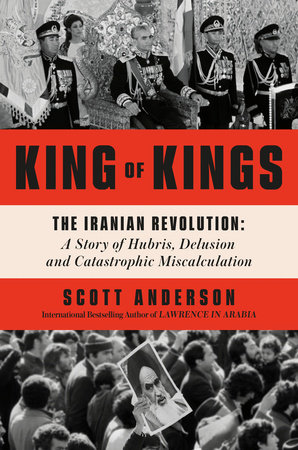As the year progressed and protests didn’t cease, sharply divergent positions developed in the U.S. Some officials, such as National Security Adviser Zbigniew Brzezinski, pushed for a hard line, clinging to the hope that American-trained Iranian forces could save the day with a coup. Others thought the U.S. had little to worry about with Khomeini because of his non-communism. The Western-educated men surrounding the ayatollah worked hard to strengthen this impression. Having failed to do their homework, few American officials knew about the extremist core of Khomeini’s ideas. This ignorance persisted to the end: Shockingly, not a single Persian-speaking staffer from the American embassy attended the ayatollah’s comeback speech in Tehran on February 1, 1979, one of the most important events in the history of the 20th century. Simply put, the revolutionary camp won because it was able to outsmart the shah and his powerful American backers.
This chaotic U.S. response is evident all the way up to February 11, 1979, the day of the revolution. Fittingly, the top-level Situation Room meeting about Iran that day didn’t include Carter or Secretary of State Cyrus Vance—both were away in Camp David—and it took place at 8:30 a.m. D.C. time, already 5 p.m. in Iran, “too late for the Americans to in any way affect the outcome there,” as Anderson puts it.
The team in the capital wanted to contact the U.S. Ambassador to Iran William Sullivan to get the latest from the ground, but he was busy with more pressing matters. Twenty-six American servicemen were in a bunker surrounded by revolutionaries, and he was trying to get them to the U.S. embassy three miles away.
Yet the calls from the White House persisted, especially an inquiry by Brzezinski, who kept insisting on his fanciful notion of a last-minute anti-Khomeini coup, a “pie-in-the-sky” idea, per Anderson. Sick of having to hear it even at this eleventh hour, Sullivan shouted on the phone: “Tell Brzezinski to go fuck himself!”
It didn’t matter. Khomeini won and the shah was done for good. Iran’s centuries-long monarchical tradition gave way to its first-ever republic. But Anderson doesn’t pin the blame on the U.S.—he hasn’t found a single culprit, and he hasn’t written a whodunit. Different U.S. actions might not have changed much. Sometimes some people just get lucky. A few months later, even when Carter did see the “approaching cataclysm” of the seizure of the U.S. embassy and the ensuing hostage crisis, he was prevented from stopping it by what Anderson describes as “a nearly freakish convergence of circumstances.”
